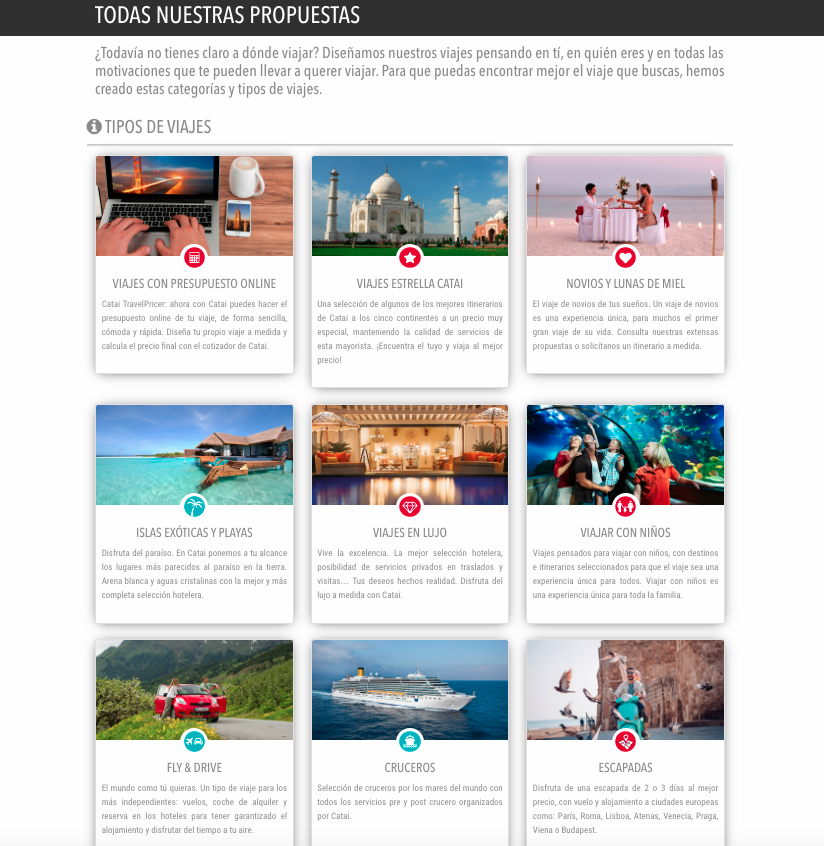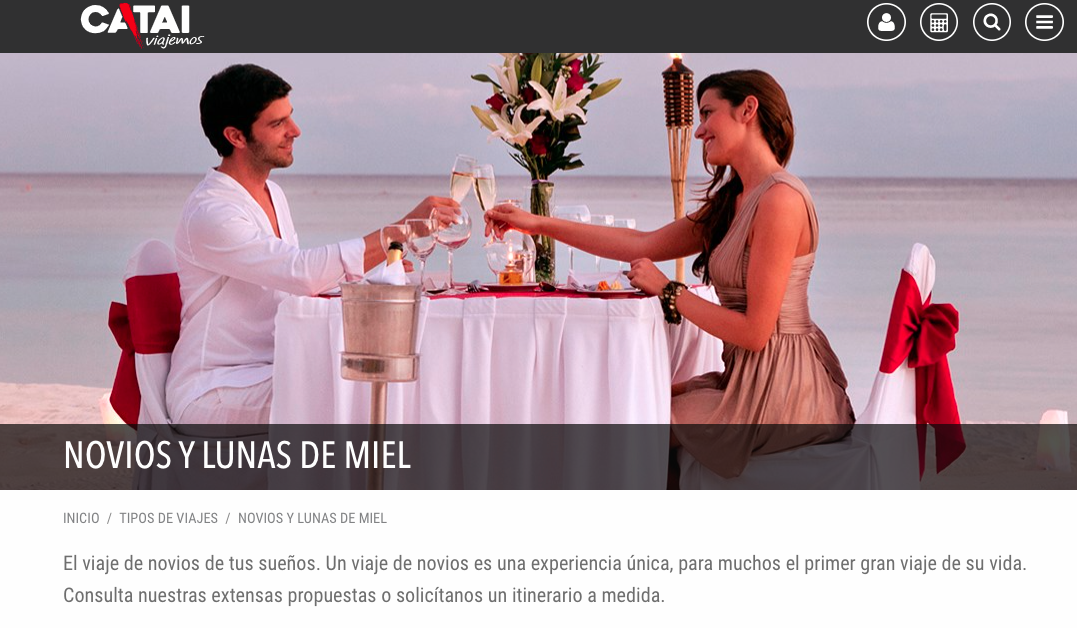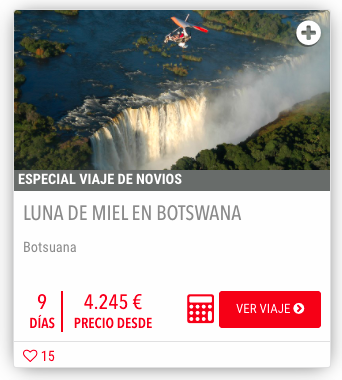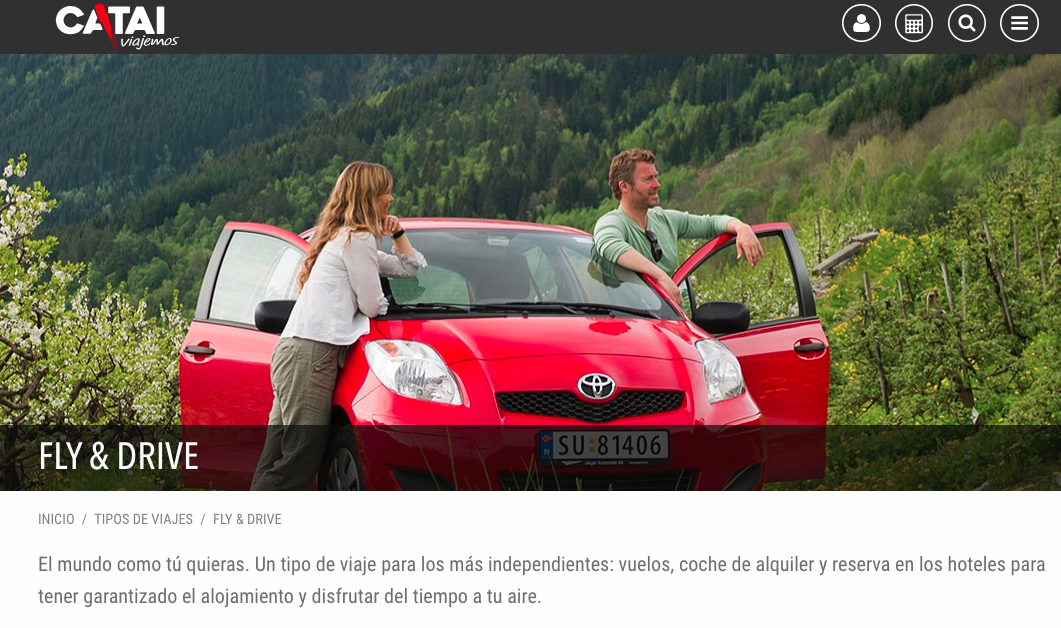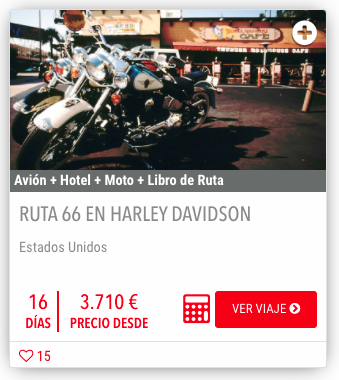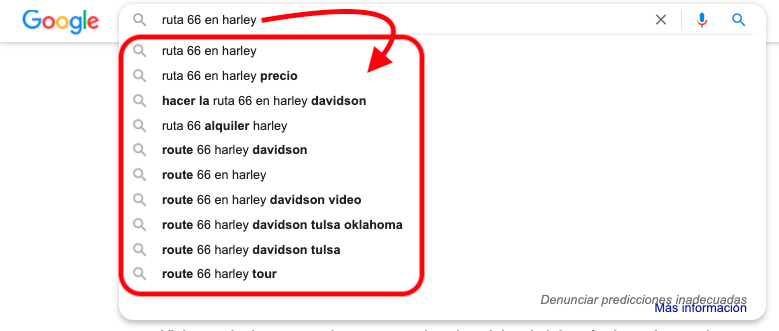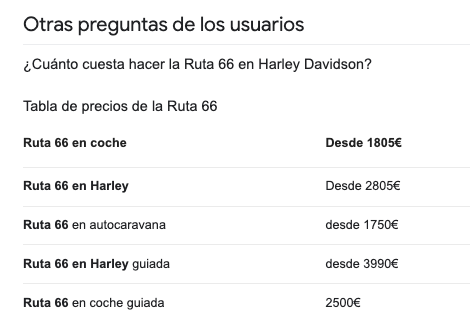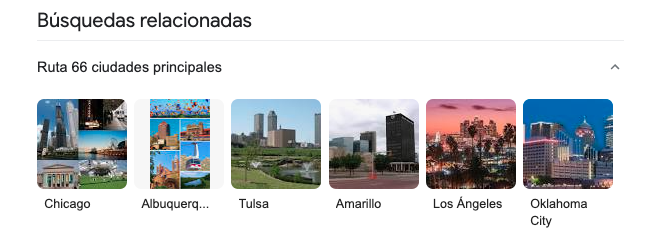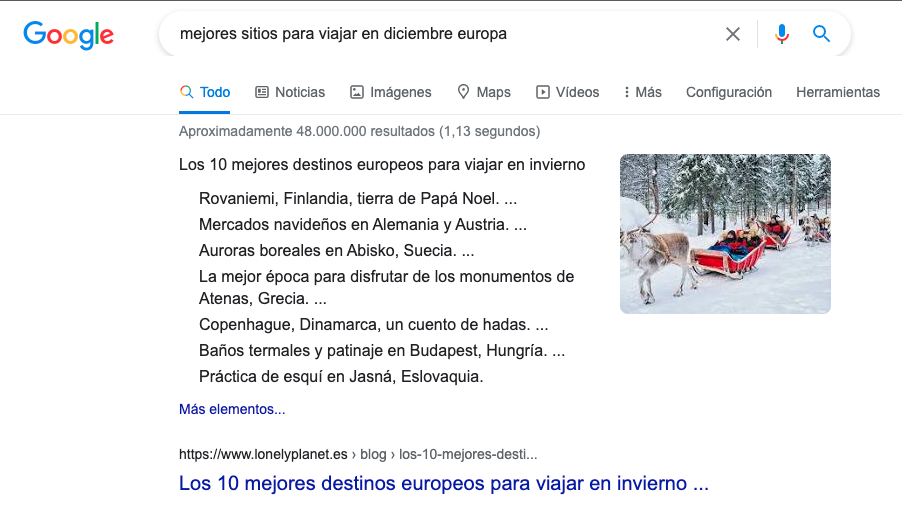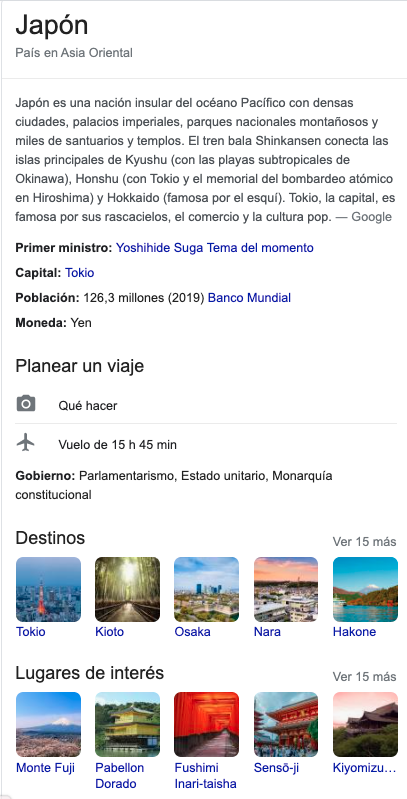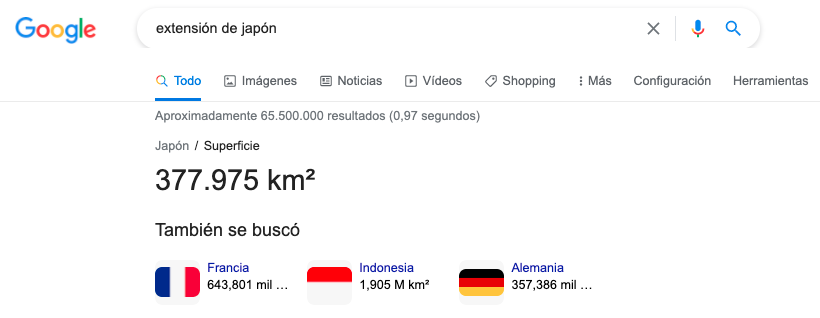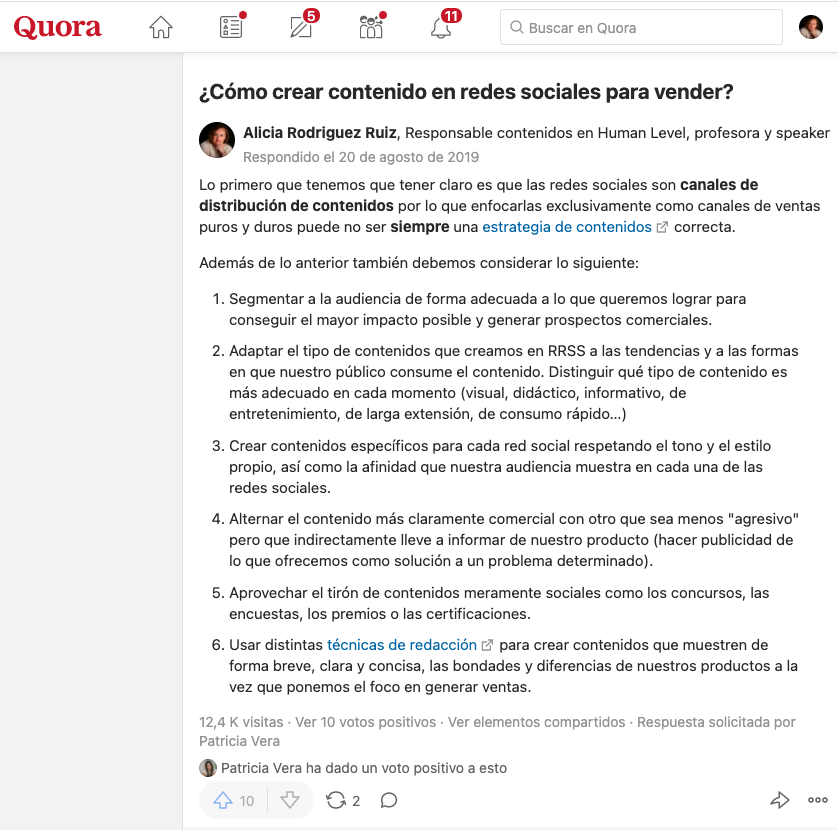Written by Alicia Rodríguez Ruiz
Index
From the moment your customers become aware of a need or concern until they decide on the best option to satisfy it, they go through different stages – their own customer journey –performing different types of searches. Therefore, the content to be created on a Web site must also be specific and different for each stage and each type of search.
In this article we will focus on the first phase of the customer journey, the awareness stage, located at the top of the sales funnel and where the searches to be performed are 100% informational in nature.
How many times have you been faced with the task of writing content to drive traffic to your brand and lacked inspiration?
Well, that is precisely the purpose of this article: to show you where you can get ideas to create content with answers to the informational searches of your real and potential audience.
What are informational searches?
Let’s start at the beginning by defining terms: informational searches respond to a user’s search intent of the type “know” through which he wants to get an answer to something, he is looking for concrete information.
Most commonly, this search is based on the very concept about which you want to inquire, accompanied by an interrogative particle:
- How to do microblading on tattooed eyebrows?
- Where to get a henna tattoo?
- What to do to buy a second-hand motorcycle?
- How much does rhinoplasty cost?
- What is the cheapest dental clinic in Bilbao?
- Who is the best plastic surgeon in Spain?
- How to find my stolen motorcycle?
- Why hire a personal trainer?
But the user can also search for information using other alternatives such as:
- Guide to learn how to meditate.
- Tutorial on how to fix the blind tape.
- Tips to avoid lumps in the béchamel sauce.
- Ideas for decorating small apartments.
- Examples of urban terrace decoration.
If we analyze them one by one, they all have a common denominator: the user has realized that he has a problem and needs to know everything that is involved or how to solve it.
Key considerations in informational searches
Keep in mind that in the awareness stage, the consumer journey is just beginning. Thus, the first hurdle to overcome as a content creator is to get to know the consumer from scratch and for this you have an exceptional ally: the profile of the buyer persona.
Tips for designing your buyer persona
Through this profile you will be able to discover what your potential buyer is like and what motivates him/her, by analyzing the following aspects:
- Your biography: name and surname (assumed).
- Your basic socio-demographic data: age, gender, marital status, academic level, work activity, income and purchasing power…
- Psychological profile: introverted, extroverted, intuitive, sentimental?
- Their motivations: online shopping option, search for different or exclusive products, competitive prices, flexible schedules…
- Their objections: high price, low quality, excessively long delivery times, limited means of payment, lack of security, questionable credibility and brand reputation?
- The information you are interested in: is the product or service you are looking for, can you do without it, what does the competition offer, what price range should you take as a reference?
Once you know who you are targeting, it is time to focus in depth on the informational searches themselves and on the content to be created to guide the user through their journey to the end, where, hopefully, they will end up purchasing your product or choosing your service.
Imagine you are a luxury travel agency. Within this segment your customer portfolio will be varied and the number of buyer personas to design will also be diverse.
Let’s look at two examples:
Buyer persona 1: Newlywed couples who want a “special” honeymoon to remember for a lifetime.
Your buyer persona profile could be: Juan Pérez and Ana San Miguel, 38 and 36 years old, he is a civil servant in the Tax Agency and she is a manager in an international tax and labor consultancy, they have been living for some time in a semi-detached house in the mountains of Madrid, the price of the trip does not keep them awake at night because it will be the wedding gift for Juan’s parents and they have not set a budget limit (how lucky they are!).
They are looking for a trip to disconnect from their respective jobs and to make their dream of seeing “Victoria Falls” come true.
Buyer persona 2: friends or couples interested in maintaining their independence when traveling but without time to make flight, hotel and tour reservations.
Your buyer persona profile could be: Carlos Antúnez and María Gil (41-year-old couple), Angel Roca and Marta Prieto (42-year-old couple). Carlos and Ángel are web developers and partners in a marketing agency, Marta and María are psychologists in a clinic they own. They live in a penthouse and a duplex on the outskirts of Bilbao, respectively. The 4 of them share their passion for motorcycles and traveling “at their own pace”.
They have a budget in mind for the trip, but what is really important for them is to save the management and paperwork because they have little time to spare but want to have all the details of the trip perfectly tied up.
They are looking for a trip of disconnection that allows them to take their passion for motorcycling to another level and do Route 66 on the back of a Harley.
Once your buyer personas are known, we move on to the next point: informational keywords.
The value of using informational keywords
A priori, informational keywords do not have a purely commercial intention, but are excellent allies to reinforce the authority and credibility of the brand given their clear contribution of value to the user through which they gain their trust. In spite of this, in the end and even if in a veiled way, this type of keywords will also end up having a positive influence in attracting traffic and, ultimately, favoring conversion.
Positioning for this type of keywords allows the brand to build its bases to generate potential customers. Why? Because remember that we are in the upper phase of the sales funnel and, logically, the more potential customers enter this phase, the higher the probability of getting a greater number of them reaching the final conversion phase.
And how do you know which are the most appropriate informational keywords?
To answer this question you should ask yourself the following questions:
- What user problem does your product or service solve?
- How will the potential customersearch?What terms will they use in their search to describe the problem they have?
- What is your attitude towards the problem or doubt? Is it a serious current problem, are you concerned and do you need an immediate solution? Just want to be informed in case it happens to you? Do you want to know how to prevent the problem?
How to create content for informational searches?
Possibly, at this point you’re asking yourself, “So where can I look for informational keyword content ideas?”
Here are some suggestions that you may not be taking advantage of.
Google Suggest
The first and quickest option is to do a simple Google search with the root keyword and note down the ideas returned by Google Suggest .
SERP functionalities
The second source of information is the SERP itself, or rather, some of the SERP functionalities .
Here are some examples.
Other user questions
We start by looking at the content ideas offered in the “Other user questions” box, where questions that Google relates to the query asked are displayed.
Even from the answers to these questions you can draw out more topics. Take a look at the following image:
Why not create a content guide to do Route 66 on Harley in an economical way? Or one based, on the contrary, on Route 66 on Harley if you have no budget limit?
Related searches
In this case, the SERP offers you alternatives to reach your potential customers through other related informational searches as shown in this image.
How about a Tulsa activity guide or a list of shows in Los Angeles?
Highlights
Featured snippets or position 0 are a functionality with a purely informational search intent and can begreat allies to attract the attention of your potential customers with interesting content.
By appearing above the rest of the results, featured snippets become an injection of extra visibility and even the CTR (Click Through Rate) associated with these results is usually high (as long as you don’t offer all the information in the snippet itself ?).
Let’s see it in a practical way with an example:
We start with a highlight on the top 10 European destinations for winter travel, which includes a topic on “Christmas markets in Germany and Austria”. Why not make a short video with images of these Christmas markets?
The highlighted fragment itself is giving you ideas hidden behind the initial search intent.
Checking the featured snippets achieved by you or your competitors gives you new ideas based on well-functioning content and results.
If you are looking for tips to optimize your content and appear in SERP results as a featured snippet, I encourage you to read this article.
Knowledge graph
This functionality appears on the desktop version to the right of the search engine and on mobile it is located above the 10 “normal” organic results.
You could use the example below to create content in different formats about places of interest in Japan or the most popular destinations when visiting the Empire of the Rising Sun. You only have to be guided by the information in the knowledge graph to take it as a reference.
The sources of information for this SERP functionality are mainly Google My Business, Wikipedia and other websites.
Direct response
Seeing a straightforward answer like the one below, perhaps you can enrich your blog post with an infographic showing the extent of Japan compared to other countries.
In this way, you are sure to get a much more interesting and enjoyable article for the reader than if you just throw in the cold data.
Online communities
When the SERP results do not offer you enough ideas or usable data, you can turn to online communities to see what is being asked in them and from there create your own content with better answers.
One of the most used is Quora, where you will find answers to different questions, advice or even product or service references from professionals from different sectors and with very different positions.
The following image shows an example:
In addition to the references shown in this article, do you know of any others? Can you share them with us in the comments of this article? We will be happy to enrich this post with your feedback.
